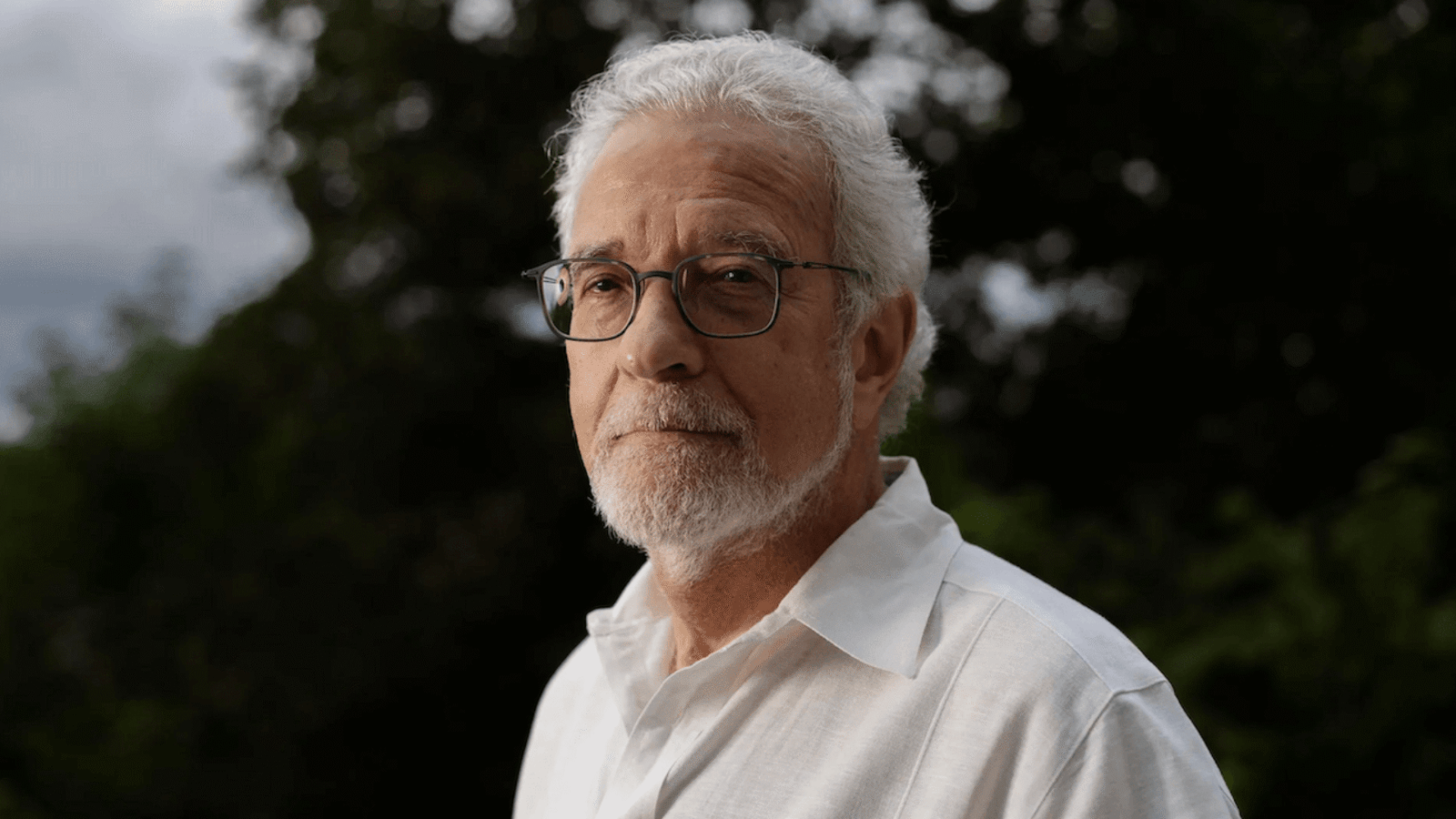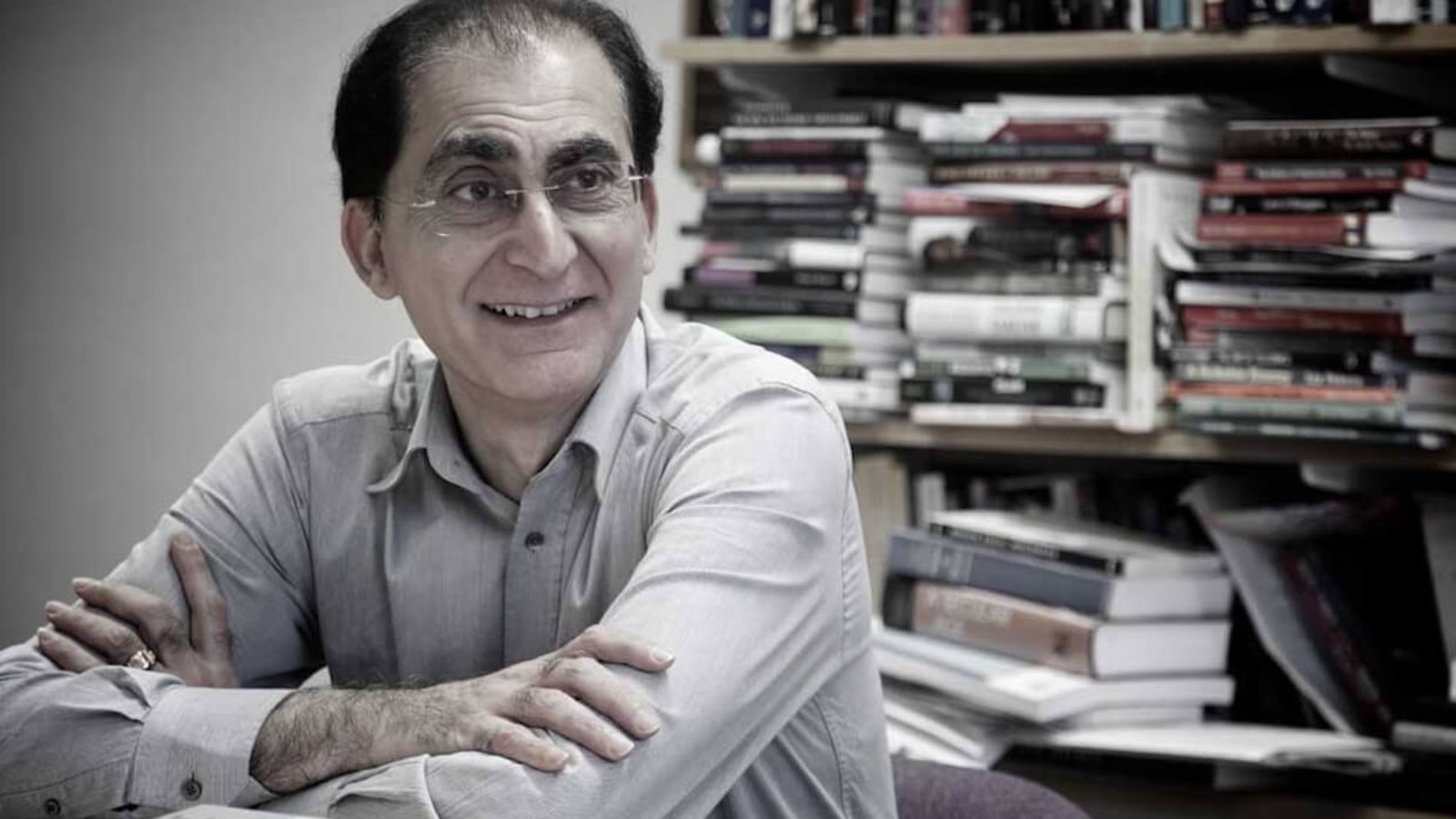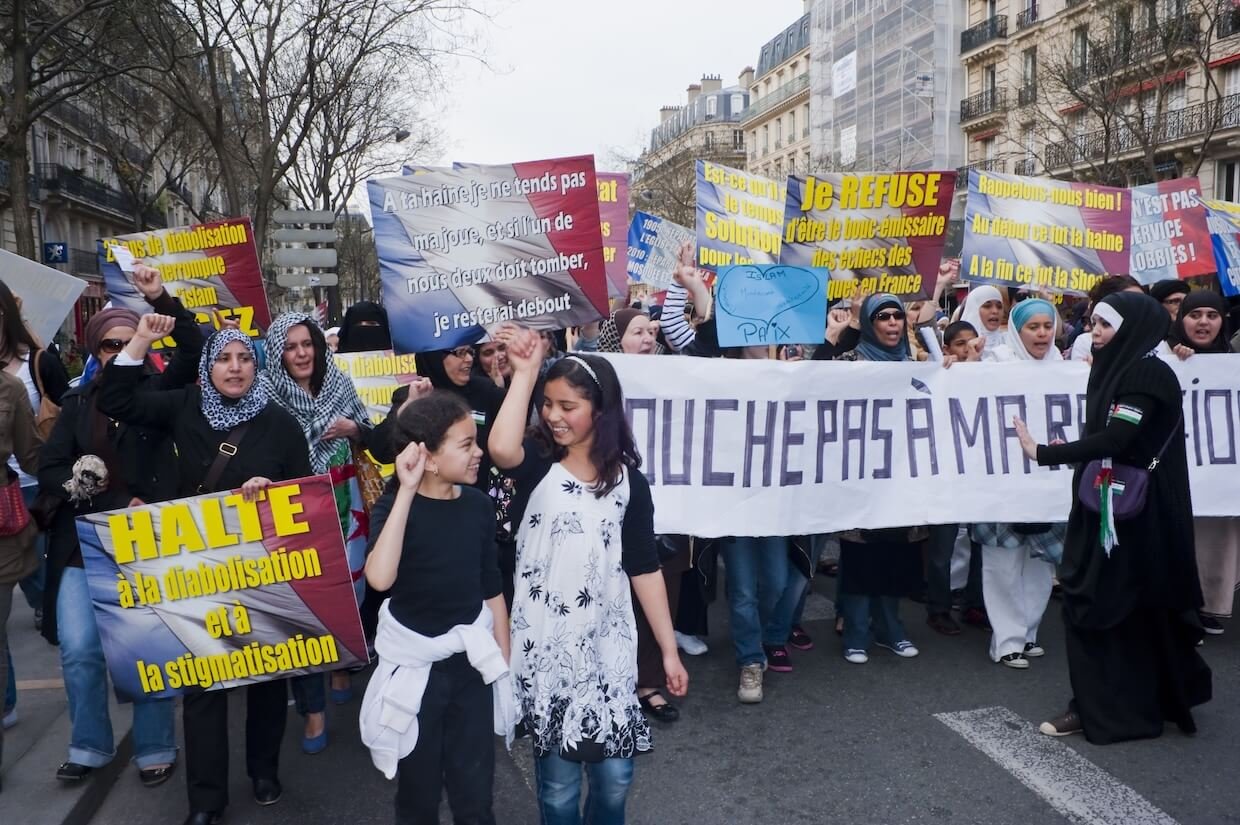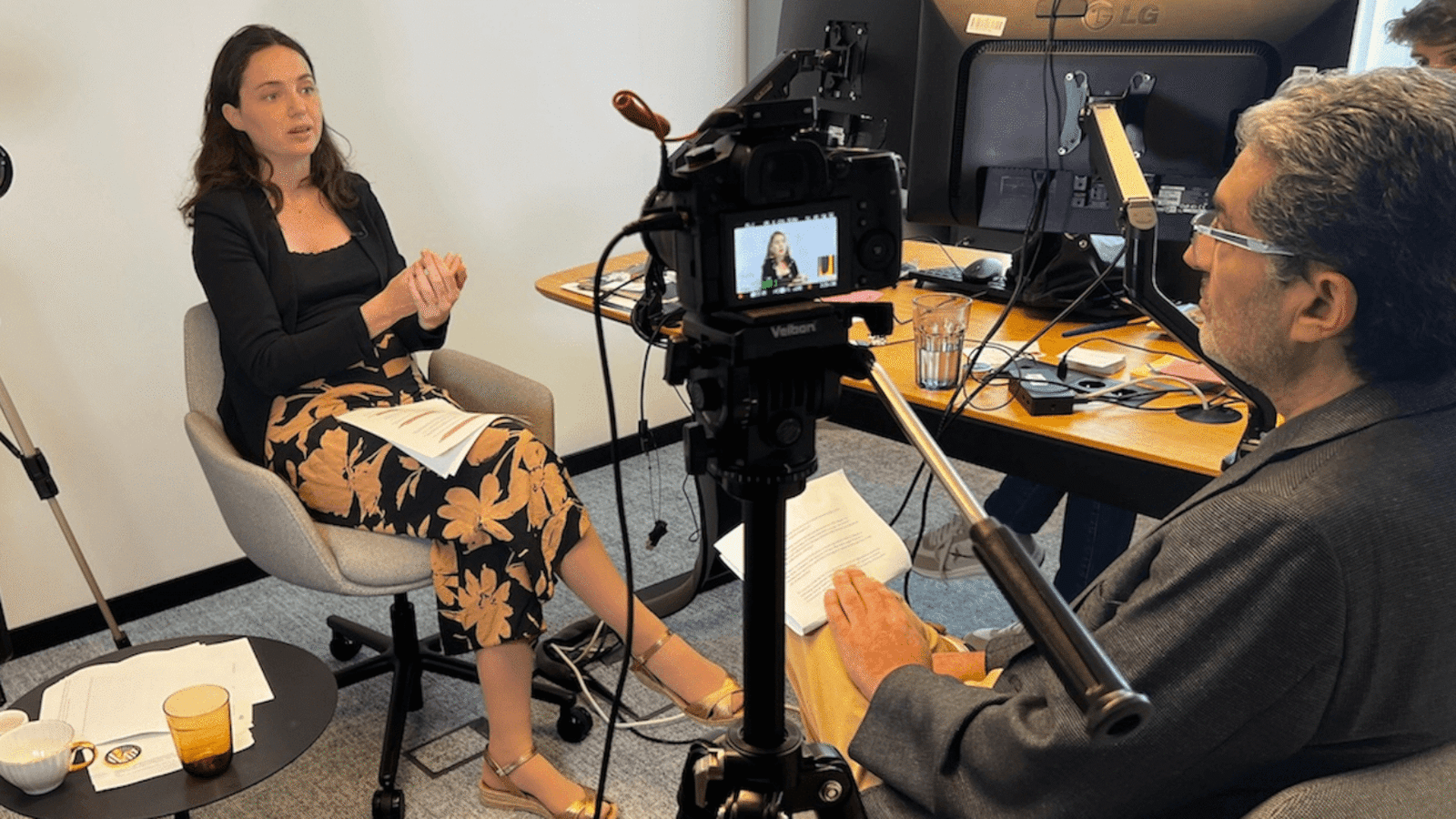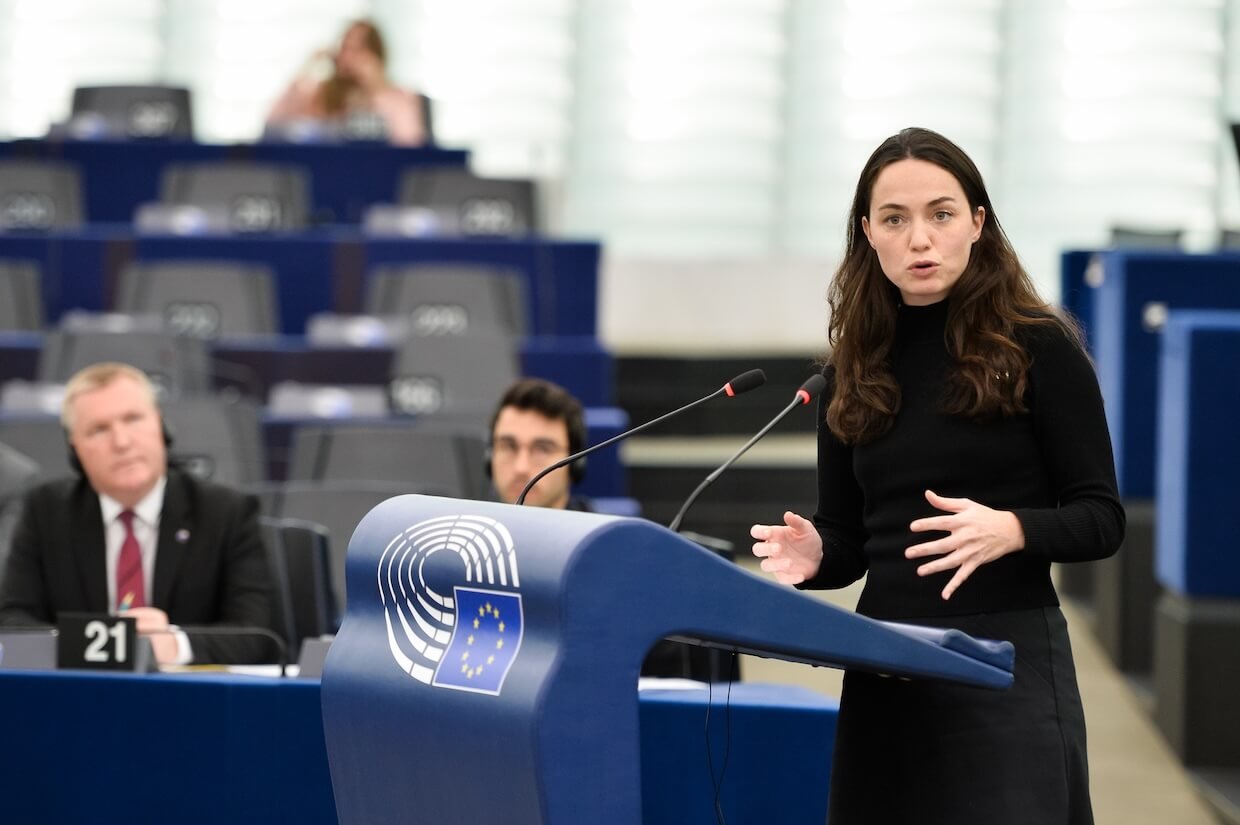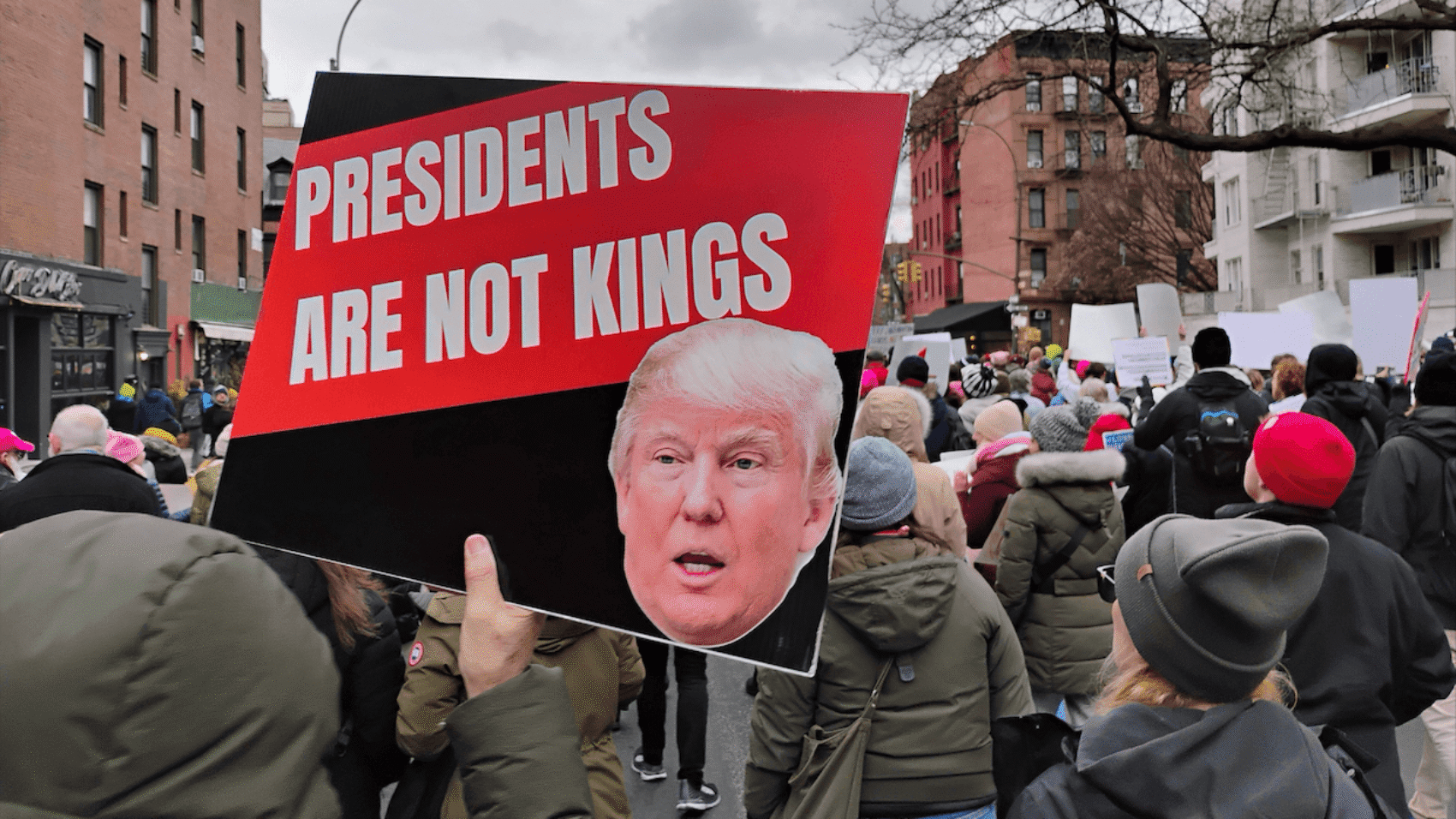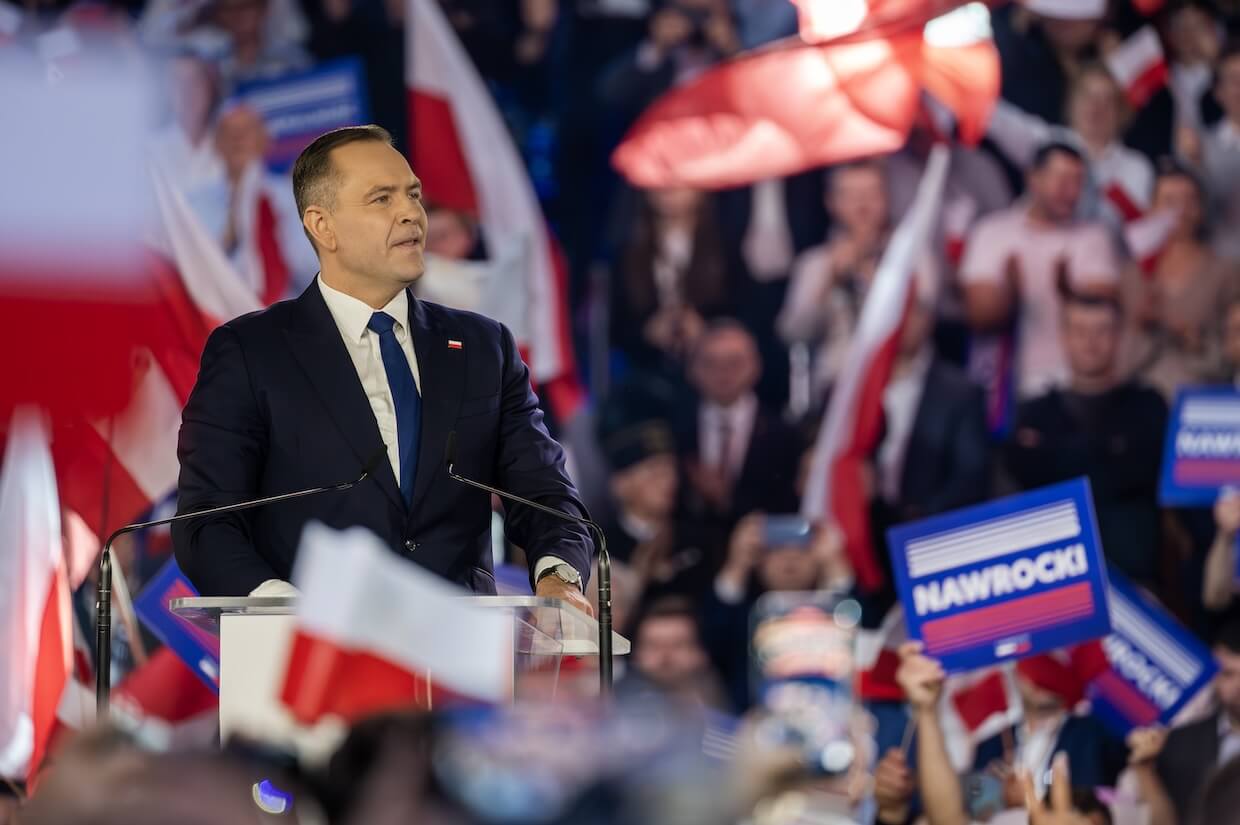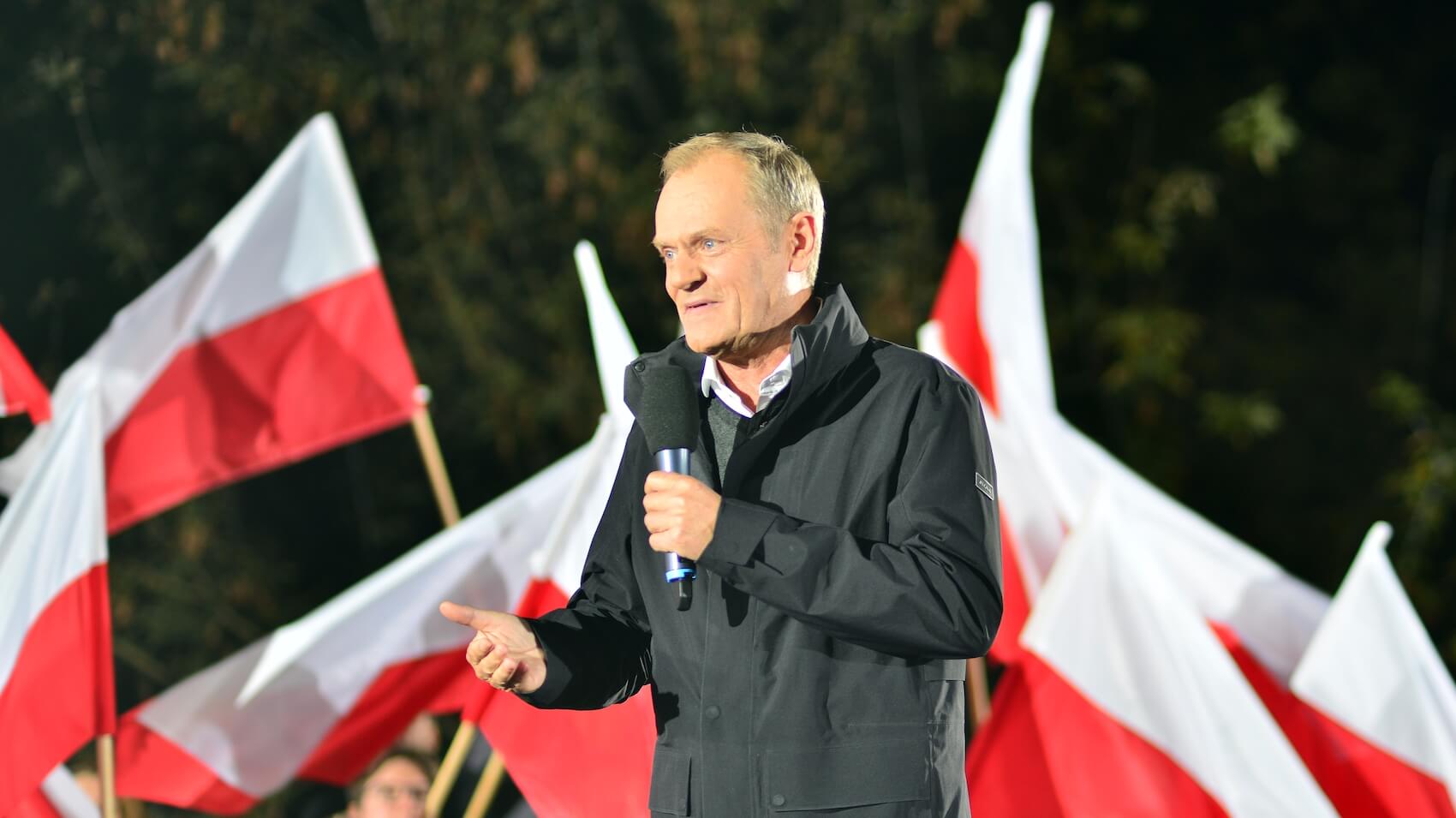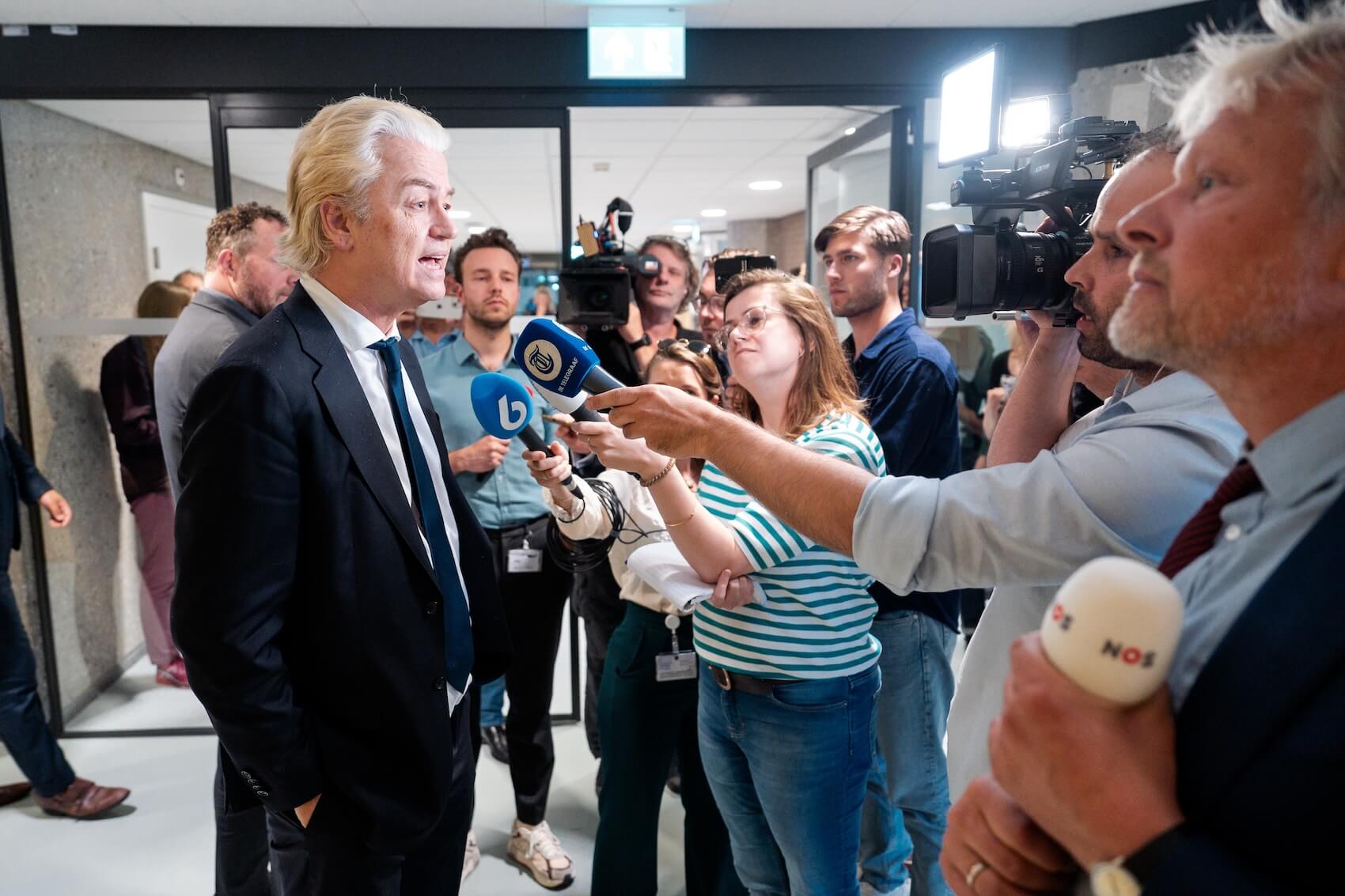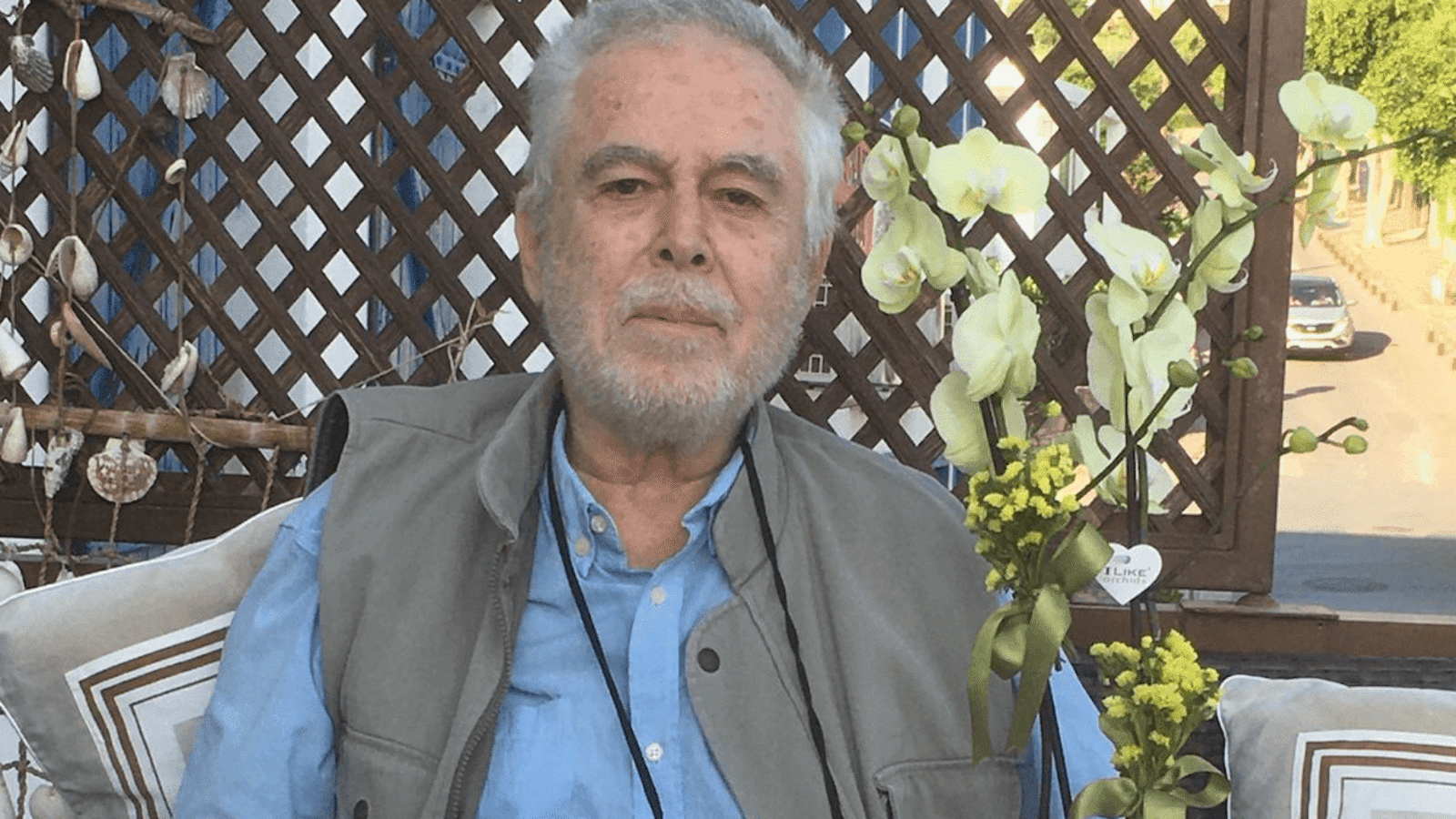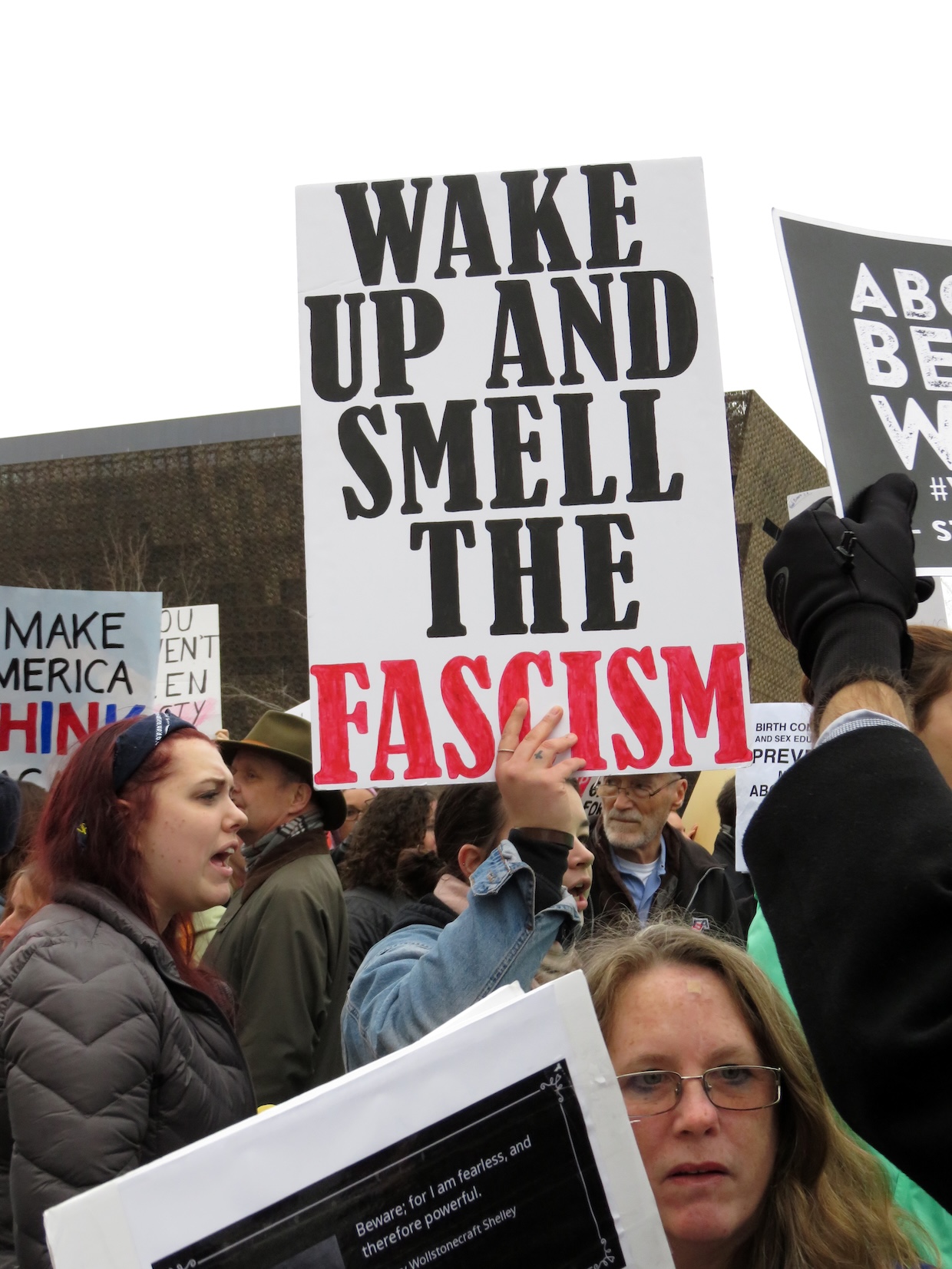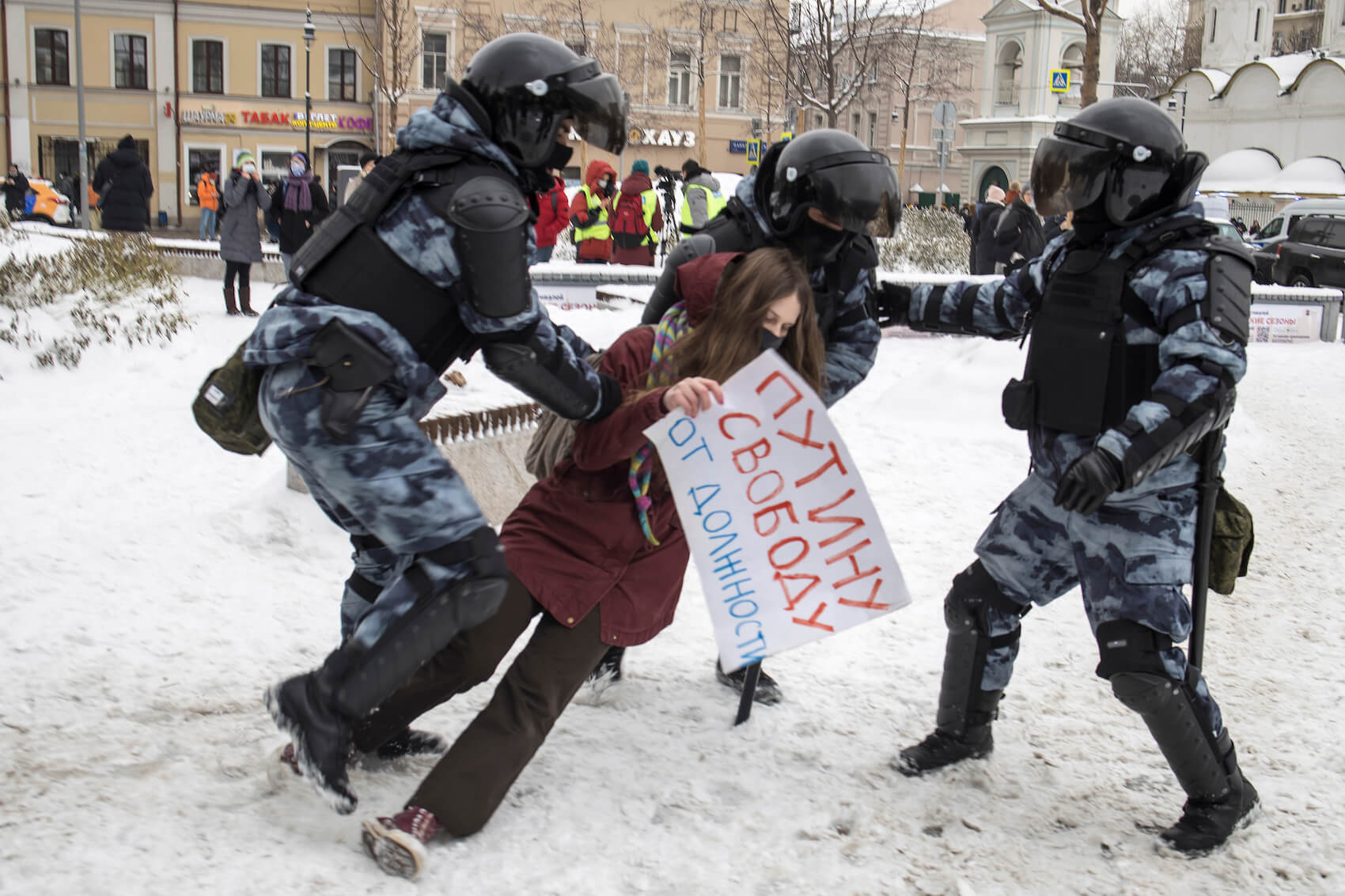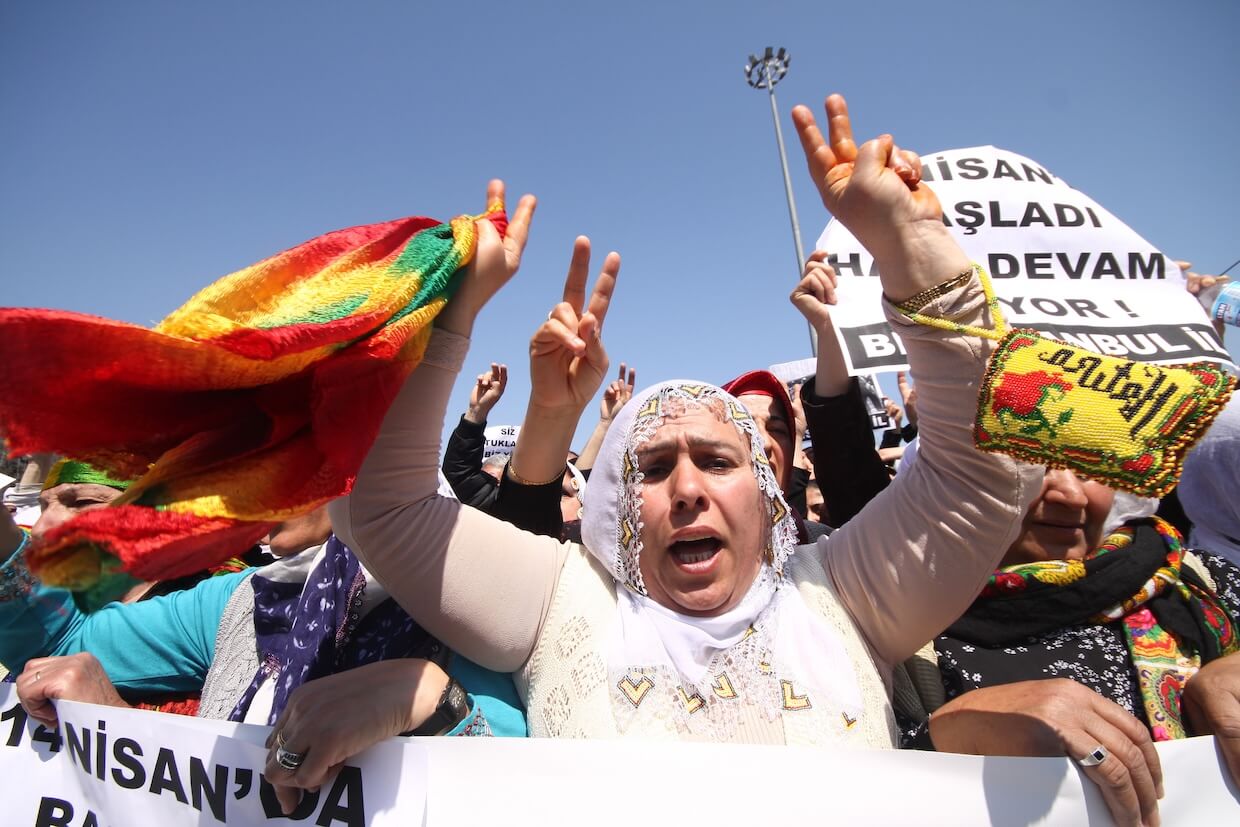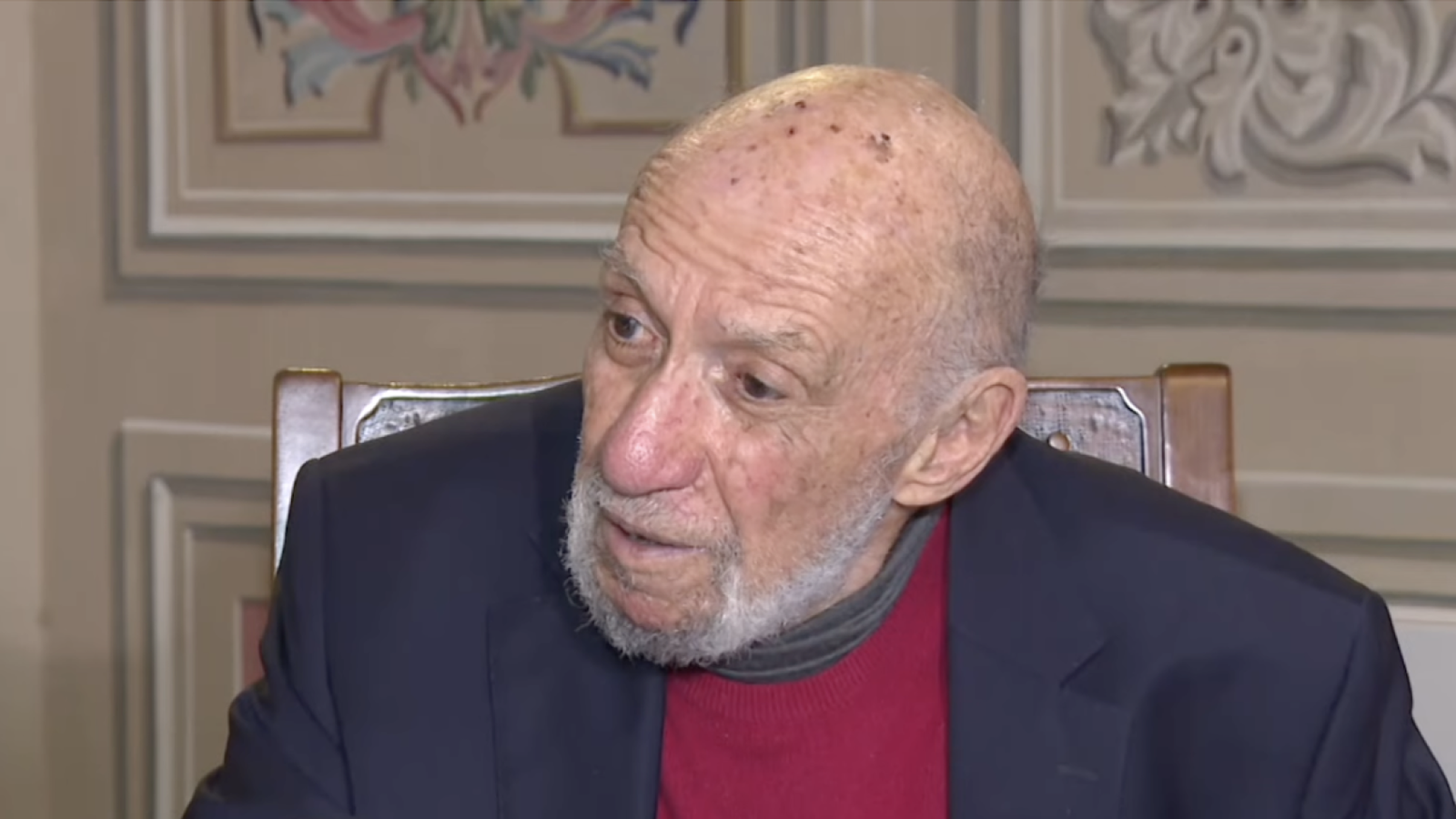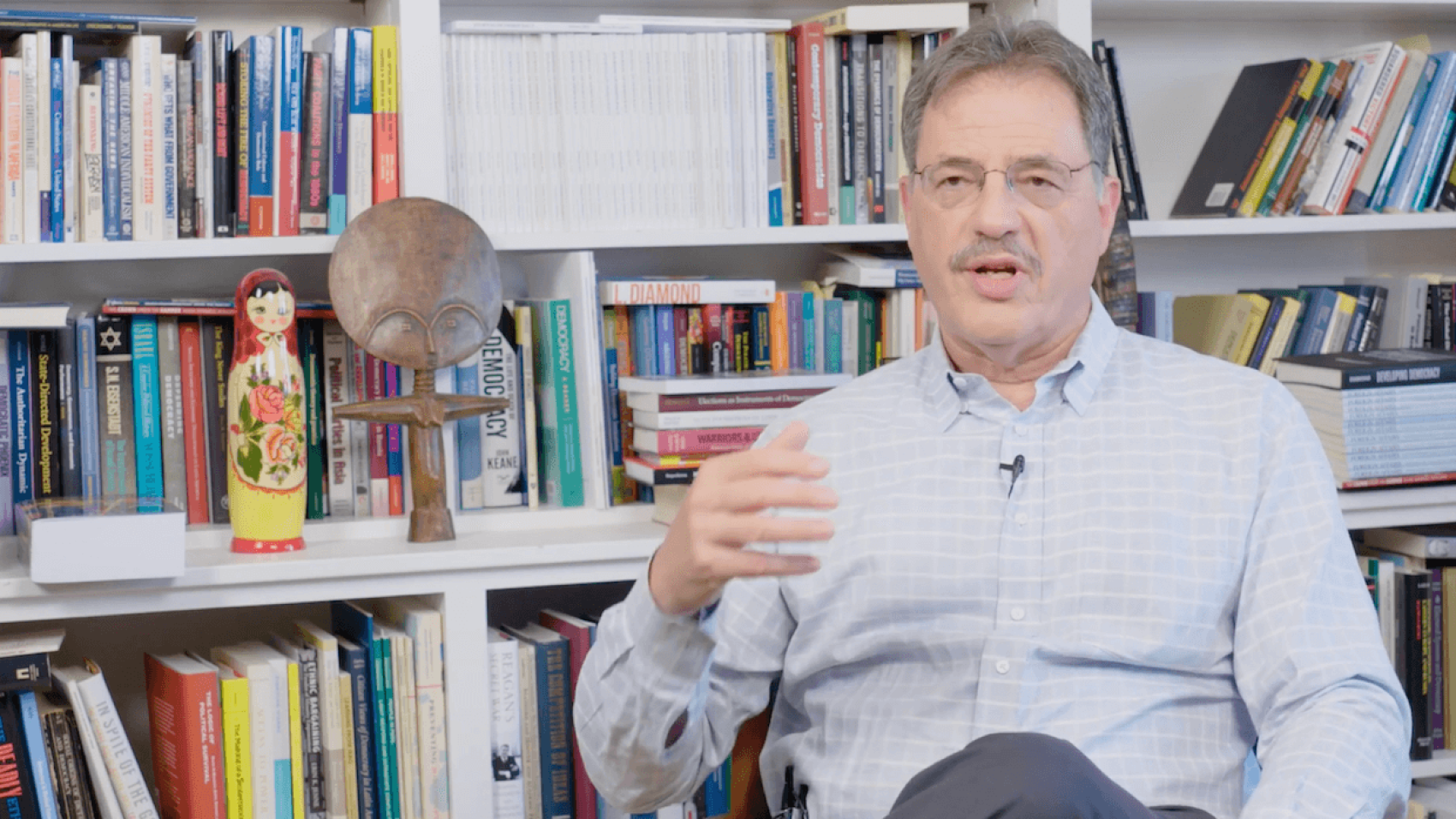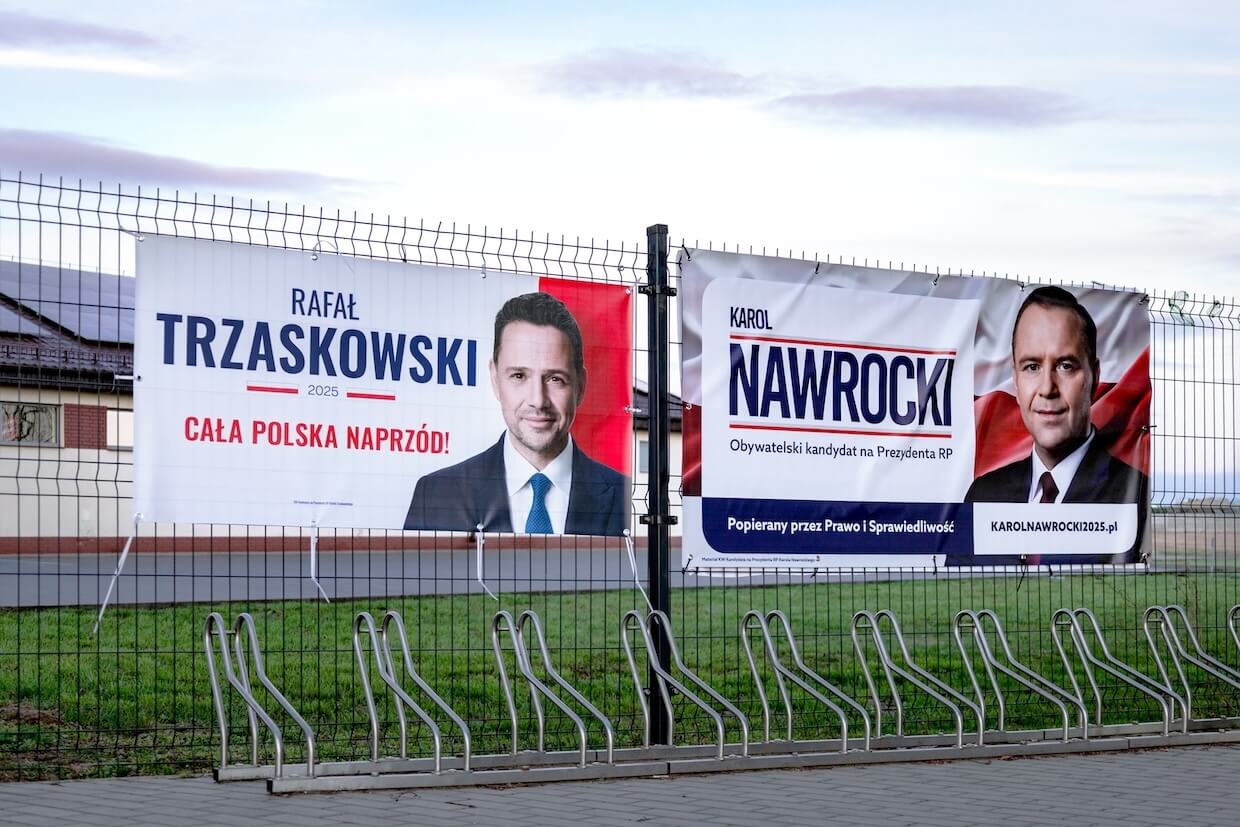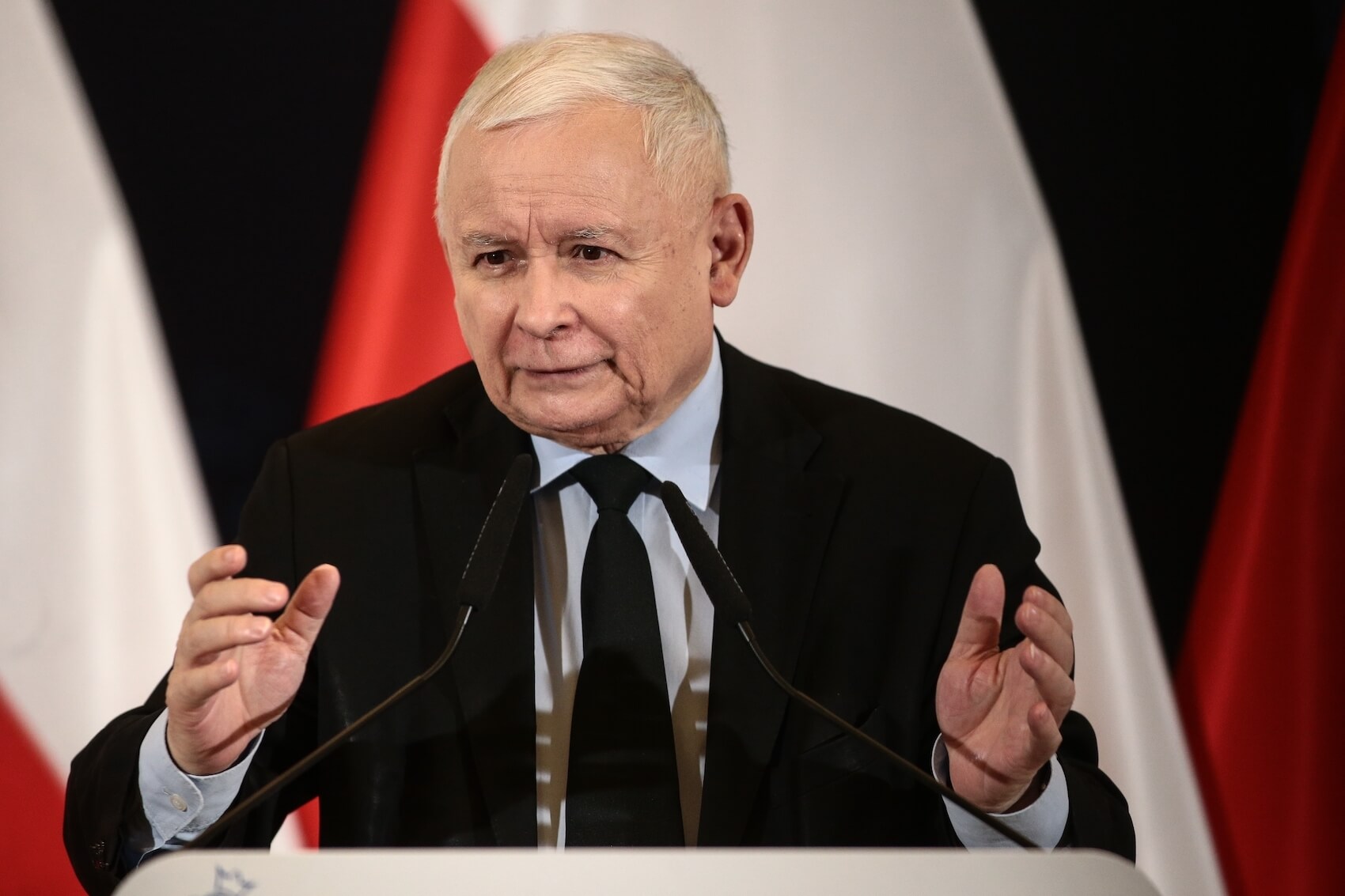In a powerful interview with ECPS, genocide scholar Omer Bartov argues that Israel’s military campaign in Gaza amounts to a “deliberate strategy of slow-moving genocide.” Drawing on the legal framework of the UN Genocide Convention and field reports from Israeli human rights groups, Professor Bartov contends that the Israeli government is intentionally making Gaza uninhabitable through starvation, displacement, and destruction of civilian infrastructure. He warns of a broader system of international complicity—what he calls a “diplomatic Iron Dome”—shielding Israel from accountability. As he dissects settler-colonial logic, media self-censorship, and the erasure of Palestinian voices, Professor Bartov issues a clear call: it is time for the world to confront both the scale of the violence and its own enabling silence.
Interview by Selcuk Gultasli
In a searing and uncompromising interview with the European Center for Populism Studies (ECPS), Omer Bartov—Dean’s Professor of Holocaust and Genocide Studies at Brown University—offers a stark diagnosis of the ongoing war in Gaza: a deliberate strategy of “slow-moving genocide.” Drawing on decades of scholarship on genocide, historical memory, and the politics of violence, Professor Bartov asserts that Israel’s military campaign is not merely excessive or misguided but rather exhibits clear patterns of intent to destroy Palestinian society in Gaza through starvation, forced displacement, and the systematic destruction of essential infrastructure. “Making life impossible,” he warns, “has become a central strategy—not an accidental consequence—of Israeli policy.”
Professor Bartov’s assessment, rooted in both empirical observation and the legal definitions enshrined in the UN Genocide Convention, challenges conventional narratives that frame the Gaza campaign solely as a response to Hamas’s October 7 attacks. While condemning massacre as a war crime and crime against humanity, Professor Bartov insists that it must be placed within a broader context of occupation, siege, and settler-colonial ideology that predates the current conflict. By May 2024, he argues, the Israeli Defense Forces had clearly shifted from their stated war aims to a policy of intentional devastation aimed at rendering Gaza uninhabitable.
What makes this analysis all the more urgent, Professor Bartov notes, is not only the scale of the destruction, but the active complicity of powerful international actors. He draws particular attention to what he calls the “diplomatic Iron Dome”—a term he uses to describe the protective shield provided by the United States and its European allies, who have continued to supply arms and political cover to Israel despite growing evidence of atrocity crimes. “This is extraordinary,” he says, “because the very countries that present themselves as guardians of international law are those facilitating what may well amount to genocide.”
Professor Bartov does not exempt the Israeli media from this dynamic of obfuscation. He highlights the role of pervasive self-censorship in shaping Israeli public opinion, describing a near-total internalization of the government’s narrative that casts all Gazans as complicit in terrorism. And yet, he also sees hope in first-person Palestinian accounts—testimonies that survive, sometimes only fleetingly, before their authors are killed. These narratives, he suggests, may ultimately reshape our collective understanding of the Gaza war and expose the moral cost of international silence.
In this wide-ranging interview, Professor Bartov unflinchingly dissects the ideological, political, and historical forces behind Israel’s war in Gaza—and calls on the world to reckon with its own responsibility.
Here is the transcript of our interview with Professor Omer Bartov, edited lightly for readability.
The Intent to Destroy Gaza Is No Longer Hidden—It’s Being Systematically Implemented

Professor Omar Bartov, thank you very much for joining our interview series. Let me start right away with the first question: Given your extensive work on the complexities of defining genocide and the centrality of intent, how should we evaluate the Israeli military campaign and mass killings in Gaza through the lens of genocide studies—particularly when patterns of indiscriminate force, dehumanizing rhetoric, and systematic targeting of civilians are framed by the Netanyahu government as necessary and legitimate acts of self-defense?
Professor Omer Bartov: Thank you for that question. First of all, the most important thing to understand when you try to determine whether genocide is happening is that you need to show that there’s an intent—an intent to destroy a particular group, in whole or in part, as such—and that that intent is being implemented.
Now, all regimes or organizations that commit genocide typically employ alternative rhetoric. They claim it is a matter of security, that they have no other choice, that war is inherently brutal, and that terrible actions are sometimes necessary in such contexts. Therefore, it is essential to cut through this rhetoric to determine whether there is a demonstrable intent to destroy a group, and whether that intent is being actively implemented on the ground.
I concluded that that intent was both expressed and then implemented in May of 2024. The reason was that already in October, immediately after the Hamas attack of October 7th, statements were made by Israeli politicians and generals that appeared to have genocidal content—statements that spoke about flattening Gaza, cutting off water, food, and energy; that nobody was uninvolved; and describing people there as human animals. But the government also then declared that its war goals were to destroy Hamas and to release the hostages, and that seemed to be a more limited kind of objective.
By May, it became evident to me that the IDF was no longer pursuing its stated war goals, but rather carrying out precisely what had been declared in the immediate aftermath of October 7th—namely, a systematic and deliberate destruction of Gaza, aimed at rendering it uninhabitable for its population. This became particularly clear when the IDF moved into Rafah, ordering the evacuation of a million people—most of whom had already been displaced at least once or multiple times—and relocated them to the Mawasi area along the coast, which lacked any form of humanitarian infrastructure. Following this forced displacement, the IDF proceeded to destroy Rafah.
That seemed to indicate that the pattern of operations—which is one way to assess whether genocide is occurring—was aimed not only at making Gaza uninhabitable through its physical destruction, but also at systematically eliminating all essential infrastructure. As we now know from a recent report by Physicians for Human Rights in Israel, this included the deliberate destruction of health services, universities, schools, and mosques—effectively targeting everything necessary for a population to care for its health, receive an education, and ultimately reconstitute itself as a community, once the violence ends—if it ever does.
That’s a conclusion I reached as early as May 2024. I wrote about it that August, but since then, of course, we’ve seen much more evidence supporting it, along with numerous additional expressions of intent to carry out ethnic cleansing in Gaza. This is a form of ethnic cleansing that, notably, cannot be fully accomplished—because there is no place for the population to flee. Consequently, we are increasingly witnessing not only the killing of large numbers of people and the creation of conditions that make life unsustainable, but also—as outlined in one of the subsections of the Genocide Convention—the severe diminishment of the ability to give birth or deliver healthy children. This is due, among other factors, to starvation, food shortages, and the collapse of medical services. One striking figure: there has been a 300% increase in miscarriages among women in Gaza since October 7th.
Israel’s Most Far-Right Government Is Mainstreaming Extremism

In your 2023 Guardian op-ed, you describe the Israeli far right as increasingly theocratic and exclusionary. How does this ideological shift, when coupled with populist rhetoric, justify or normalize indiscriminate violence?
Professor Omer Bartov: I would say that the current Israeli government is the most far-right government the country has ever had. It includes not only Netanyahu—who himself has become much more extreme, while remaining a savvy and cynical politician—but also members of parties that, until the coalition was formed in late 2022, had been anathema to Israeli politics and considered marginal. This includes the party led by Bezalel Smotrich, a settler who promotes an ideology rooted in Jewish supremacy, and Itamar Ben-Gvir, who represents another strain ideologically connected to Rabbi Meir Kahane—a figure often described as a Jewish Nazi. Kahane was banned from running for the Knesset by the Supreme Court, and Ben-Gvir is widely regarded as his ideological descendant.
These two people are now the most powerful ministers in Netanyahu’s government. However, I would add that alongside these figures—who are religious fanatics, anti-democratic, and openly racist—there are also other members of the government who are secular. While they do not belong to the religious camp, they are nonetheless extremely radical in their views. The current Minister of Defense, Israel Katz, for instance, has openly proposed the creation of what he calls a “humanitarian city” over the ruins of Rafah—which, in fact, would function as a vast concentration camp. Into this space, approximately 600,000 Palestinians—those who were displaced last year and sent to the Mawasi area—would be crammed, and they would only be allowed to leave if they exited the Gaza Strip altogether. Figures like Katz, and Levin, the current Minister of Justice, are extremely radical both in terms of their ambitions to transform Israel’s political system and in their approach to the treatment of Palestinians. Yet, they are not part of the religious-messianic faction.
Genocide Is Framed as Justified Retaliation in Israeli Public Discourse
In your article “Israel’s War in Gaza and the Question of Genocide” (2025), you argue that Israeli policies in Gaza are shaped by settler-colonial logic and a dehumanizing view of Palestinians, often perceived by many Israelis as a collective threat. In the light of Hamas’s October 7 massacre, how should we interpret the moral and legal boundaries of state response—especially when that attack is used to legitimize large-scale military campaigns that may constitute genocide?
Professor Omer Bartov: There are two levels here that you need to think about. One is what most people who are trying to defend Israel would like to forget—that the Hamas attack of October 7th, however heinous it was—and to my mind, it was a massacre, a war crime, and a crime against humanity—came within a broader context, which we should not ignore. That context includes, first of all, the siege of Gaza, which has gone on for 16 years by Israel since Hamas took over, and more generally, the occupation of Palestinians since 1967. So, for most of the existence of the State of Israel— I was 12 when Israel won the 1967 War and began the occupation. That’s the occupation.
By the way, most of the Palestinians who were living then in the Gaza Strip and the West Bank were people or descendants of people who had been expelled from Israel in 1948. So, they had already become refugees. Now I’m 71. It’s most of my lifetime that Israel has occupied those people. When you occupy large numbers of people—and there are equal numbers of Jews and Palestinians between the river and the sea—this has a dehumanizing effect on both sides. Obviously, the occupier dehumanizes those they occupy, because that’s the only way they can justify it to themselves. And they, too, are dehumanized by that process. So that’s the broader context that helps explain, in part, why the Israeli public is so indifferent to what is happening in Gaza.
But the second, of course, is the attack itself. The Hamas attack created a sense of trauma, confusion, and insecurity within the Israeli public that seemed to justify any kind of response to such an extent. Now there is more discussion of that—both around the world and even in parts of Israel—to the extent that people were willing to entertain the idea of genocide in response to a massacre—which, of course, is not only illegal under international law but is plainly unethical. So, the situation we find ourselves in now is that, for large parts of the Israeli public over all those months, it appeared that, because of the attack of October 7th, the only guilty party in starving the population, destroying Gaza altogether, and killing large numbers of people was Hamas. And that’s a typical dynamic in these kinds of situations. Usually, organizations carrying out genocide—and the public that supports them—see their victims as the main perpetrators. That’s a very common aspect of genocide. And that is what we’re seeing now in Israel.
A Deliberate Strategy to Render Gaza Uninhabitable Is Unfolding Before Our Eyes

Photo: Giovanni De Caro.
Two prominent Israeli human rights organizations, B’Tselem and Physicians for Human Rights, recently reported that Israel is committing genocide in Gaza by targeting civilians based solely on their Palestinian identity—causing severe, and in some cases irreparable, harm to Gazan society. As a genocide scholar, could you evaluate how such assessments reinforce or complicate international legal debates surrounding intent, proportionality, and the criteria for defining state violence as genocide?
Professor Omer Bartov: First of all, what is important to point out is that both the report—which I was reading drafts of over the last few weeks—and Physicians for Human Rights in Israel, these are Israeli NGOs. And it’s the first time that Israeli NGOs, made up of Israeli physicians, scholars, legal scholars, have said openly, with a huge amount of evidence, that what they’re seeing is genocide. They make slightly different arguments, but it comes down to the same thing. That as such is very important, because this is coming from within Israeli society itself.
The debate over whether this constitutes genocide has gone on for a long time. As I wrote in The New York Times, I believe there is a growing consensus among both genocide scholars and legal experts that this is, in fact, genocide. It’s true that genocide can be difficult to identify, and it’s also true that if the debate focuses solely on whether this is genocide, there is a risk of overlooking the fact that—even if the classification remains uncertain—clear war crimes and crimes against humanity are being committed on a daily basis. Thus, the ongoing debate may actually divert attention from the criminality of the war itself, as we remain preoccupied with the question: “Is it genocide or not?”
But by now, I think intentionality is clearly there. In fact, one curious aspect of this event is that intentions were declared very early on, and that’s not always the case. The question was whether these declared intentions were being implemented. And as I said, that to me became clear well over a year ago, right in May last year.
And by now, I think it’s clear that what the IDF tried to do between October and January was to ethnically cleanse Northern Gaza and the area north of the Netzarim Corridor. Since breaking the ceasefire in March, its focus has shifted to starving the population—not merely as an unintended consequence, but as a deliberate tactic to force people to move south. That was the objective: first, to withhold food from the North so that people would leave; and second, once distribution points were finally established—four in total—three were located in the South, clearly intended to draw people there and concentrate them in preparation for the next phase, which would be to push them out altogether.
So, I think these reports contribute significantly to the discussion. I would say that the report by Physicians for Human Rights is especially valuable, in addition to the other report, because it clearly demonstrates—for the first time—that there was a deliberate destruction of the entire healthcare system in Gaza. This, even more than the ongoing famine, will have long-term repercussions. It’ll be very hard to rebuild it, if ever, and the consequences for the life and health of the population will be very long term.
And so, it speaks about a sort of slow-moving genocide, among other things, explaining why, as they understand it, the Israeli government refrained from killing larger numbers of people that might have brought more public attention and international pressure on Israel, but rather doing it in a slower version that is more difficult to prove, at least while it is happening. So, you can see a tactic here—and a deliberate one—to make life impossible in Gaza for its Palestinian population.
Israel Is Operating Under a Diplomatic Iron Dome While Advancing Ethnic Cleansing

In your 2021 article “Blind Spots of Genocide,” you critique the Western-centric orientation of genocide studies and call for the inclusion of settler-colonial violence and victim perspectives. How should these frameworks be revised to more accurately reflect the dynamics of Israeli state violence in Gaza? Moreover, how does the international community’s muted response to this violence- especially in contrast to its swift condemnation of Hamas’s October 7 massacre- highlight enduring asymmetries in how global discourse defines and recognizes victimhood and perpetration?
Professor Omer Bartov: There’s a lot in your question, so I’ll focus on at least part of it—perhaps the most crucial part right now, or maybe two aspects. The first is that it is absolutely extraordinary that, since October 7th, Israel has operated with complete impunity in its actions in Gaza—and, of course, also in the West Bank, which we can discuss in a moment. This is not merely impunity in the sense that no one intervenes to stop it, but active facilitation through massive military assistance. The Israeli IDF could not have carried out its operations without a constant supply of arms and munitions from the United States, as well as from European allies—most notably Germany, which is the second-largest supplier of arms to Israel—and substantial diplomatic cover.
You know that Israel is living under a diplomatic Iron Dome—protected by the United States, which, as a permanent member of the UN Security Council, vetoes any attempt to sanction Israel for its actions. This is extraordinary, because the countries facilitating Israel’s actions in Gaza are the very ones most strongly identified as defenders of international law and human rights—that is how they describe themselves. And Israel is not Syria, Russia, China, or Somalia; it is a country described by itself and its allies as the only democracy in the Middle East, as a protector of human rights. It is, therefore, an exceptional case that receives exceptional support from the very actors who champion the rules and norms of the international legal order—rules that Israel is now in severe breach of. That’s an extraordinary situation. There are reasons for this, and they are somewhat complex, but that is the reality.
The second issue, of course, is: why is Israel doing what it is doing? Israel is doing this because, I would say, until October 7th, Netanyahu had managed to persuade most of the Israeli public—and, in fact, much of the international community—that Israel could, so to speak, manage the occupation. That there was no need for any territorial compromise or further negotiations, because the occupation was containable. One way he did this was by supporting Hamas. We tend to forget that Hamas was seen by the Israeli right—by figures like Smotrich, and very much by Netanyahu himself—as an asset. Israel persuaded Qatar to provide millions of dollars to Hamas, which were literally handed over in large cash bags by Israelis to Hamas. A fair amount of that money, in fact, was used to build Hamas’s tunnel infrastructure.
The rationale was: it’s advantageous to have Hamas, because Hamas is widely viewed as a terrorist and fundamentalist organization, one that seeks to replace Israel with an Islamic state. Therefore, it is not considered a viable partner for negotiations. In contrast, the Palestinian Authority (PA) is recognized internationally—which is not favorable for Israel—but it is also perceived as weak and corrupt, and thus not a significant threat. Moreover, the PA collaborates with Israel in the West Bank, which further diminishes any urgency for diplomatic engagement from Israel’s perspective.
That all blew up on October 7th, when Hamas launched its attack. Initially, the Israeli government and military were quite shocked by the events, and it took them a few days to recover. Then, figures like Netanyahu, Smotrich, and Ben-Gvir suddenly realized—at least in their minds—that this was an opportunity rather than merely a fiasco. They saw it as a chance to resolve the issue by other means. If the occupation could no longer be effectively managed, then the alternative, in their view, was to ethnically cleanse the population—using the global consensus that Israel had been attacked and that hundreds of Israeli civilians had been massacred as a justification to now “solve” the problem.
But for Netanyahu, of course, there is a dilemma. And the dilemma is this: if, as he claims, he needs absolute victory—total victory—what does that actually mean? If Hamas is eliminated from Gaza, who takes over Gaza? Who would govern it? The IDF does not want to assume that role—for good reason. It would be too costly, both in lives and in resources; it would be unsustainable. So, who would govern? The natural choice would be the Palestinian Authority—perhaps a reconfigured version of it—but ultimately, it would need to be ruled by Palestinians. And that would defeat the entire purpose of this government, which is to maintain the separation between Gaza and the West Bank, complete the operation in Gaza, and then accelerate the creeping ethnic cleansing of the West Bank. This is the situation we find ourselves in now. The dynamic this government is pursuing is the completion of ethnic cleansing and, to the extent possible, the annexation of territories in both Gaza and the West Bank.
Holocaust Memory Has Been Turned Into a License for Extreme Violence
In your New York Times and Guardian commentaries, you warn against the instrumentalization of Holocaust memory as a means of shielding the Netanyahu regime from accountability. How has the Israeli far right- particularly figures like Netanyahu and Ben-Gvir- invoked Holocaust analogies to deflect allegations of war crimes and genocide in Gaza?
Professor Omer Bartov: I want to point out that it’s not only the far right in Israel that uses these analogies. The phenomenon is much broader. In fact, there is almost a consensus in Israeli society—ranging from the left to the far right. This has been a long process. I would argue that the use of the Holocaust as both a unifying memory for Israeli society and a license to exercise extreme violence against anyone perceived to be resisting Israeli rule and occupation, accelerated particularly in the late 1970s and early 1980s. You may recall that Israeli Prime Minister Menachem Begin—the first right-wing prime minister of Israel and a disciple of Ze’ev Jabotinsky—remarked in 1982, following the Israeli invasion of Lebanon, that Arafat, who was then in Beirut, was hunkering down in his bunker like Hitler in Berlin during World War II. These kinds of associations between Palestinians, the PLO, Hamas—and Nazis—have become embedded in the fabric of Israeli politics.
If you listen to mainstream Israeli media—which never shows images of the horrors in Gaza—they consistently refer to Hamas as Nazis. This triggers, within the Israeli public, a perception that the threat is existential, that Auschwitz is just around the corner. And if Auschwitz is around the corner, then Israel must do everything it can to prevent it and to destroy its enemies entirely. To hell with what the international community says, to hell with international law—we are fighting for our very existence. That’s the kind of rhetorical mechanism that has been perfected.
To this, Netanyahu has added a crucial element: the weaponization of anti-Semitism. Any protest against Israel—regardless of whether it comes from Jewish students on American campuses demonstrating against the atrocities in Gaza—is immediately labeled as anti-Semitism. He has succeeded in doing this to such an extent that, both in Europe—particularly in Germany—and in the United States, there has been a clampdown on these protests in the name of combating anti-Semitism.
This Isn’t Censorship—It’s Self-Mobilization

In “Blind Spots of Genocide” (2021), you stress the need to center victims’ perspectives. In Gaza, how do Israeli media censorship and the framing of all Gazans as “Hamas” obscure or erase civilian experiences?
Professor Omer Bartov: It does, of course. But again, I want to say—when you say censorship, you’re being kind. Because on mainstream outlets, such as the public TV channel Kan 11, there is no formal censorship. There is military censorship—they can’t reveal certain information—but they have every right to report on what’s happening to Palestinians in Gaza. They choose not to, out of self-censorship. And self-censorship is a much more effective mechanism, one that has existed in the Israeli media for a long time.
My father was a journalist, and I remember that kind of self-censorship since I was a child under the Labor governments. This was not invented today. But now, at this point, it’s extraordinary—the extent of both self-censorship and the mobilization of the entire spectrum of the Israeli media—with two very small but important exceptions: Haaretz newspaper, which is reporting very bravely (in fact, some of the best reporting on the war in Gaza is coming from Haaretz itself), and Local Call or +972, which is an even smaller group of intrepid reporters.
But by and large, this is not censorship; this is self-censorship and self-mobilization. And that’s something much more difficult to fight against. In part, it has to do—as so much does in the world today—with ratings. They don’t want to alienate their own viewers by saying things the audience doesn’t want to hear. But in part, it’s that they themselves have internalized the narrative. And while they may not be particularly supportive of Netanyahu, and certainly not of the far-right elements in his government, they generally view this as a just war, and they tend to regard the killing in Gaza as, at best, lamentable collateral damage. And that’s a far worse situation than the kind of censorship that could be removed simply by changing the government.
First-Person Testimonies Will Redefine How the World Remembers Gaza
And lastly Professor Bartov, in “Between Integrated and First-Person History” (2021), you advocate for incorporating personal narratives. How might first-person Palestinian accounts reshape dominant narratives about the Gaza war and its moral consequences?
Professor Omer Bartov: So, about the Gaza war itself—I think, look, it’s deeply tragic, because so many of the reports that have come out of Gaza are not only heartbreaking; often, they are accounts by people who were themselves killed shortly afterward. But I do think these reports are increasingly having an effect around the world. Clearly, there has been a widespread failure—perhaps not an intentional one, but nonetheless real—on the part of the international media, which, being denied access to Gaza, has largely accepted this absence of reporting. It has not pressed hard enough to provide objective coverage of events inside Gaza and has, in general, paid insufficient attention to what is happening.
This has changed somewhat now because of the widespread starvation. And, as has happened in many past genocides and other forms of war crimes, there often comes a moment when certain images begin to shift public perception and draw global attention. This occurred during the war in the former Yugoslavia, for example, with the photographs of Bosniaks behind barbed wire. It also happened during the Vietnam War with the iconic image of the girl burned by napalm. Similarly, the recent images of starving children have had a profound effect—a different kind of narrative, in a way. At the very least, you see the people themselves. You see what is happening to obviously innocent children. You simply can’t present that as anything other than what it is.
I think in the future—I’ve read several such texts by people who were there and who, fortunately, managed to get out and write accounts. As a strong believer in first-person narratives—which convey what you will never hear or understand if you rely solely on top-down documentation—I believe there will be more of these stories. And I think that, eventually, our understanding of what is going on—and, once it’s over, what had gone on—will deepen significantly, and the horror will be revealed to have been even greater than we could have imagined.

